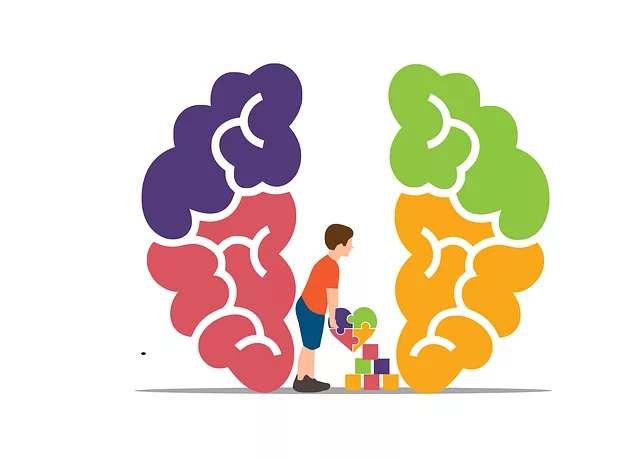Risk Management Planning is essential for delivering high-quality, safe mental healthcare at the Kaiser Permanente center in Centennial, addressing growing service demands. By proactively identifying and mitigating risks, the well-being of staff and patients improves. This involves developing control protocols, preventing burnout, enhancing patient outcomes, and fostering community resilience through integrated outreach programs. Positive Kaiser Permanente mental health center reviews Centennial highlight the effectiveness of this strategy in critical healthcare settings, focusing on unique mental health risks with tailored strategies, evidence-based practices, staff training, and inner strength development. Incorporating patient feedback from Kaiser Permanente mental health center reviews Centennial leads to continuous improvements in care quality and outcomes.
Mental health professionals face unique risks daily, necessitating robust risk management planning. This article explores strategic approaches to mitigating these risks, using insights from Kaiser Permanente Mental Health Center Centennial’s experience. We delve into understanding key risk factors in mental health care and developing effective strategies. Learn from their comprehensive plan implementation and the invaluable lessons gained from patient reviews, offering practical guidance for healthcare organizations seeking to enhance safety and patient outcomes. Discover how these steps can revolutionize risk management practices.
- Understanding Risk Management in Mental Health Care
- Unique Challenges at Kaiser Permanente Mental Health Center Centennial
- Developing a Comprehensive Risk Management Plan
- Implementing and Reviewing the Plan: Lessons from Patient Reviews
Understanding Risk Management in Mental Health Care

Risk Management Planning is an integral part of ensuring quality and safe mental health care services, especially in bustling healthcare settings like Kaiser Permanente mental health centers. Located in Centennial, these centers are often at the forefront of providing accessible and effective therapy to a diverse range of patients. Understanding risk management involves recognizing and mitigating potential hazards within this dynamic environment to foster a healthy work environment for professionals. It’s not just about adhering to regulations; it’s a proactive approach to burnout prevention, enhancing patient care, and maintaining the well-being of mental health workers.
The process requires a comprehensive strategy that includes identifying risks, developing protocols for their control, and regularly reviewing and updating these measures. This is particularly relevant in light of increasing demands on mental health services and the unique challenges faced by professionals in this field. Moreover, integrating community outreach program implementations can further strengthen risk management efforts, fostering resilience among both staff and patients.
Unique Challenges at Kaiser Permanente Mental Health Center Centennial

The Kaiser Permanente Mental Health Center Centennial faces unique challenges that require a nuanced approach to risk management planning. As a leading healthcare provider, Kaiser Permanente is renowned for its comprehensive mental health services; however, the Centennial location navigates specific complexities. One significant challenge lies in managing patient expectations and privacy concerns, especially with sensitive data sharing among various teams within the large organizational structure. This requires robust protocols for information security and patient confidentiality.
Additionally, given the diverse range of patients, from adolescents struggling with depression prevention to adults dealing with emotional regulation issues, tailoring interventions becomes critical. The center must be adept at addressing these varied needs while ensuring a safe and supportive environment. Effective risk management involves training staff in emotional intelligence to handle complex cases and foster a culture where open communication encourages clients to seek help without fear of judgment.
Developing a Comprehensive Risk Management Plan

At a Kaiser Permanente mental health center in Centennial, developing a comprehensive risk management plan is paramount to ensure patient safety and foster a supportive environment for both patients and professionals. This involves identifying potential risks specific to the mental health field, such as ethical dilemmas, crisis interventions, and client confidentiality concerns. A robust strategy includes implementing evidence-based practices, regular staff training on risk assessment and mitigation techniques, and establishing clear protocols for managing high-risk cases.
The plan should also emphasize inner strength development and mental wellness coaching programs to empower professionals to manage their own stress levels and prevent burnout. By integrating these strategies, the Centennial center aims to create a resilient ecosystem that promotes effective risk management, ultimately enhancing patient outcomes and the overall quality of care provided by dedicated mental health professionals.
Implementing and Reviewing the Plan: Lessons from Patient Reviews

Implementing a robust risk management plan is an ongoing process for mental health professionals, and valuable insights can be gained from patient reviews. At the Kaiser Permanente mental health center in Centennial, regular assessments and feedback sessions with patients have become integral to refining their strategies. These reviews offer a unique perspective, allowing practitioners to identify potential gaps or areas of improvement within their care protocols.
By engaging patients in discussions about their experiences, the center has developed a more nuanced understanding of effective crisis intervention techniques and stress management approaches. Patient reviews provide concrete examples of what works well and highlight any challenges encountered during treatment. This feedback loop fosters an adaptive environment where mental health professionals can continuously enhance their practices, ultimately improving patient outcomes and ensuring a supportive and responsive care setting.
Mental health professionals, like those at Kaiser Permanente Mental Health Center Centennial, face unique challenges in their daily practice. Effective risk management planning is essential for ensuring patient safety and delivering quality care. By understanding these risks, developing a comprehensive strategy, and regularly reviewing its impact through patient feedback, as demonstrated by Kaiser Permanente mental health center reviews Centennial, professionals can enhance resilience and foster healthier outcomes for individuals seeking support. This approach not only mitigates potential harms but also strengthens the overall effectiveness of mental health services.





